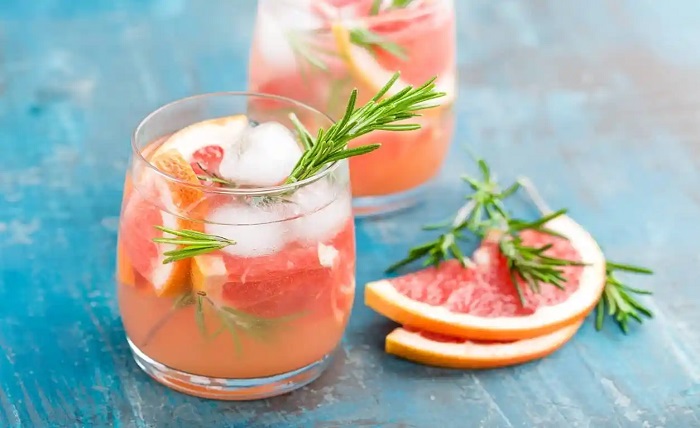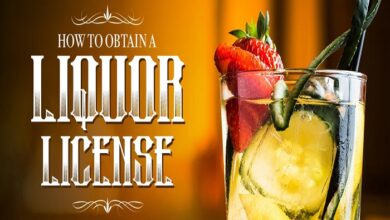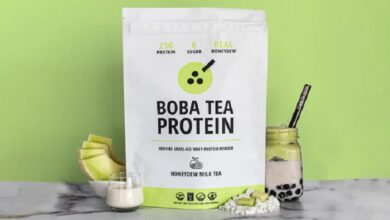How to Stay Sober After Dry January: 7 Tips for a Healthy Lifestyle

Dry January is a popular challenge that encourages people to abstain from alcohol for the first month of the year. Many people take part in Dry January to improve their health, save money, or break bad habits. But what happens when Dry January is over? Do you go back to your old drinking patterns, or do you try to maintain your sobriety?
If you want to stay sober after Dry January, you are not alone. According to a study by the University of Sussex, 70% of people who completed Dry January said they drank less six months later. Staying sober can have many benefits for your physical and mental well-being, such as better sleep, clearer skin, lower blood pressure, improved mood, and reduced risk of chronic diseases.
However, staying sober can also be challenging, especially if you face social pressure, stress, boredom, or cravings. That’s why we have compiled 7 tips to help you stay sober and enjoy a healthy lifestyle after Dry January.
Tip 1: Set a clear goal and track your progress
One of the first steps to staying sober is to set a clear and realistic goal for yourself. Do you want to quit drinking completely, or do you want to reduce your intake to a moderate level? Whatever your goal is, make sure it is specific, measurable, achievable, relevant, and time-bound (SMART). For example, your goal could be “I will not drink any alcohol for the next three months” or “I will limit myself to one drink per week for the next six months”.
Once you have your goal, track your progress and celebrate your achievements. You can use a calendar, a journal, an app, or a website to record your sober days, your triggers, your emotions, and your rewards. You can also join a community of sober people online or offline, such as Alcohol Change UK, Soberistas, or SMART Recovery, to share your experiences and get support.
Tip 2: Find healthy alternatives to drinking
One of the reasons why people drink is to cope with negative emotions, such as stress, anxiety, sadness, or anger. However, alcohol is not a healthy or effective way to deal with these feelings, as it can worsen them in the long run. Instead of reaching for a drink, try to find healthy alternatives to drinking that can help you relax, unwind, and have fun. Some examples are:
- Exercise: Physical activity can boost your mood, reduce your stress, and improve your health. You can choose any type of exercise that you enjoy, such as walking, running, cycling, swimming, yoga, or dancing.
- Meditation: Meditation can help you calm your mind, focus on the present, and cope with negative thoughts and emotions. You can practice meditation on your own, or use an app, a podcast, or a video to guide you.
- Hobbies: Hobbies can help you express yourself, learn new skills, and have fun. You can pursue any hobby that interests you, such as reading, writing, painting, gardening, cooking, or playing an instrument.
- Socializing: Socializing can help you connect with others, share your feelings, and have a good time. You can socialize with your friends, family, colleagues, or neighbors, or join a club, a group, or a class that matches your interests.
Tip 3: Avoid triggers and temptations
Another reason why people drink is to fit in with their social environment, such as parties, pubs, or restaurants. However, these places and situations can also trigger and tempt you to drink, especially if you are surrounded by people who are drinking. To avoid triggers and temptations, you can:
- Plan ahead: Before you go to a social event, decide how much (if any) you are going to drink, and stick to your plan. You can also bring your own non-alcoholic drinks or order them from the bar. You can also arrange a sober buddy, a designated driver, or a taxi to help you stay safe and accountable.
- Say no: If someone offers you a drink, you have the right to say no. You don’t have to explain yourself, or feel guilty, or rude. You can simply say “No, thank you”, “I’m not drinking tonight”, or “I’m driving”. You can also change the subject, or walk away from the situation.
- Avoid high-risk situations: If you know that a certain place, person, or event will make you want to drink, you can avoid it altogether. You can also suggest alternative activities, such as going to a cinema, a museum, or a park, instead of a pub or a club.
Tip 4: Deal with cravings and urges
Even if you avoid triggers and temptations, you may still experience cravings and urges to drink. Cravings and urges are normal and common, and they don’t mean that you have failed or that you have to give in. Cravings and urges are temporary and manageable, and they will pass with time. To deal with cravings and urges, you can:
- Distract yourself: When you feel a craving or an urge, try to distract yourself with something else that can occupy your attention and your hands. You can call a friend, play a game, listen to music, watch a show, or do a crossword.
- Delay your decision: When you feel a craving or an urge, try to delay your decision to drink for at least 15 minutes. During this time, you can remind yourself of your goal, your reasons, and your benefits of staying sober. You can also think of the consequences of drinking, and how you will feel afterwards.
- De-stress yourself: When you feel a craving or an urge, try to de-stress yourself with some relaxation techniques, such as deep breathing, progressive muscle relaxation, or visualization. You can also use positive affirmations, such as “I can do this”, “I am strong”, or “I am in control”.
Tip 5: Reward yourself and be kind to yourself
Staying sober is not easy, and it requires a lot of effort, commitment, and courage. That’s why you should reward yourself and be kind to yourself along the way. You can reward yourself with anything that makes you happy, such as a treat, a gift, a compliment, or a hug. You can also be kind to yourself by practicing self-care, such as getting enough sleep, eating well, drinking water, and taking care of your hygiene.
However, rewarding yourself and being kind to yourself does not mean that you should drink as a reward or as a way of self-care. Drinking is not a reward or a way of self-care, as it can harm your health, your mood, and your progress. Instead, you should reward yourself and be kind to yourself with things that are good for you, such as non-alcoholic drinks, healthy snacks, or relaxing activities.
Tip 6: Learn from your mistakes and don’t give up
Staying sober is not a linear process, and it may involve some setbacks, slips, or relapses. A setback, slip, or relapse is when you drink again after a period of sobriety. A setback, slip, or relapse is not a sign of weakness, failure, or hopelessness. It is a sign that you need to learn from your mistake and make some changes to your plan.
If you have a setback, slip, or relapse, don’t give up on yourself or your goal. Instead, you should:
- Stop drinking as soon as possible and get rid of any alcohol in your possession.
- Seek help from someone you trust, such as a friend, a family member, a counselor, or a support group.
- Identify what triggered or tempted you to drink, and how you can avoid or cope with it in the future.
- Review your goal and your plan, and make any adjustments or improvements that you need.
- Forgive yourself and move on. Don’t dwell on the past, or beat yourself up, or lose hope. Focus on the present, and the future, and the positive steps that you can take.
Tip 7: Seek professional help if you need it
Staying sober can be challenging, and sometimes you may need more than your own willpower and resources. If you find yourself struggling with your sobriety, or if you have any signs of alcohol dependence or addiction, such as:
- Drinking more than you intend to, or for longer than you plan to.
- Having trouble cutting down or stopping drinking, despite wanting to.
- Spending a lot of time or money on drinking, or recovering from drinking.
- Experiencing withdrawal symptoms, such as shaking, sweating, nausea, or anxiety, when you don’t drink.
- Neglecting your responsibilities, your relationships, your health, or your hobbies because of drinking.
- Continuing to drink, even though it causes you problems, such as physical, mental, social, or legal issues.
Conclusion:
Dry January is a great way to start the year with a positive change, but it doesn’t have to end there. You can continue to enjoy the benefits of sobriety by following these 8 tips to stay sober and live a healthy lifestyle. Remember, you are not alone in this journey, and you can always seek help if you need it. Staying sober is not easy, but it is worth it.




